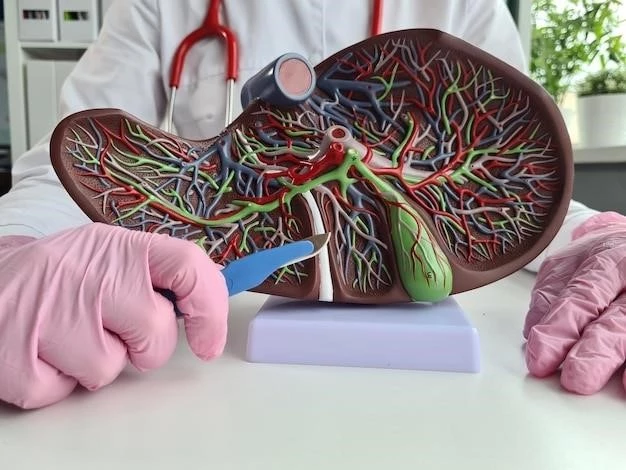Introduction
Congenital adrenal hyperplasia is a rare autosomal recessive disorder caused by enzyme deficiencies, including 17-alpha hydroxylase deficiency, impacting adrenal steroidogenesis.
17 alpha hydroxylase deficiency overview
Congenital adrenal hyperplasia is a rare autosomal recessive disorder caused by enzyme deficiencies, including 17-alpha hydroxylase deficiency٫ impacting adrenal steroidogenesis. This condition is characterized by mutations in the CYP17A1 gene and affects adrenal and gonadal function٫ leading to disruptions in corticosteroid٫ glucocorticoid٫ and sex hormone synthesis. The incidence of 17 alpha hydroxylase deficiency is estimated at 1 in 50٫000٫ making it a rare form of congenital adrenal hyperplasia with distinct clinical features and genetic underpinnings.
Clinical Features
The clinical presentation of 17 alpha-hydroxylase deficiency includes disruptions in adrenal and gonadal function, leading to a variety of symptoms related to corticosteroid and sex hormone abnormalities.
Characteristics of 17-OHD
Congenital adrenal hyperplasia due to 17-alpha-hydroxylase deficiency is a rare form of the condition, with an estimated incidence of 1 in 50,000 individuals. This deficiency results from mutations in the CYP17A1 gene, leading to impaired adrenal and gonadal functions, causing disruptions in the synthesis of corticosteroids and sex hormones. The deficiency can manifest with symptoms such as hypertension, hypokalemia, and hormonal imbalances affecting sexual development.
Common Symptoms
Common symptoms of 17 alpha hydroxylase deficiency include hypertension, hypokalemia, sexual development abnormalities, and disruptions in adrenal and gonadal functions. Patients may present with primary amenorrhea, delayed puberty, and hormonal imbalances impacting glucocorticoids and sex hormones.

Genetics
The rare autosomal recessive disorder, 17 alpha hydroxylase deficiency, is attributed to mutations in the CYP17A1 gene, impacting adrenal and gonadal functions and disrupting steroid hormone synthesis.
Role of CYP17A1 Gene
CYP17A1 gene mutations play a critical role in the development of 17 alpha hydroxylase deficiency, affecting adrenal and gonadal functions. These mutations lead to disruptions in steroid hormone synthesis, causing hormonal imbalances and impacting overall endocrine health.
Mutations and Inheritance
17 alpha hydroxylase deficiency is a rare autosomal recessive disorder caused by mutations in the CYP17A1 gene. These mutations result in impaired adrenal and gonadal functions, leading to disruptions in steroid hormone synthesis. Inheritance follows an autosomal recessive pattern, meaning that an individual must inherit a mutated gene copy from both parents to develop the condition.
Diagnosis
Diagnosing 17 alpha hydroxylase deficiency involves assessing clinical symptoms٫ hormone levels٫ and genetic testing for mutations in the CYP17A1 gene. Differential diagnoses may include other forms of congenital adrenal hyperplasia.
Testing Methods
Diagnosing 17 alpha hydroxylase deficiency involves clinical assessment٫ hormone level evaluation٫ and genetic testing using techniques like DNA sequencing to identify mutations in the CYP17A1 gene. Physicians may also perform imaging studies to evaluate adrenal gland structure and function. Differential diagnoses should consider other forms of congenital adrenal hyperplasia to confirm the specific enzymatic deficiency.
Differential Diagnoses
When evaluating patients for 17 alpha hydroxylase deficiency, differential diagnoses may include other forms of congenital adrenal hyperplasia, such as 21-hydroxylase deficiency. Clinical features and genetic testing help distinguish between various enzyme deficiencies causing adrenal and gonadal dysfunction.
Prevalence
Congenital adrenal hyperplasia due to 17-alpha-hydroxylase deficiency is a rare condition with an estimated incidence of 1 in 50,000 individuals globally. The disorder is an autosomal recessive disease caused by mutations in the CYP17A1 gene.
Global Occurrence
17-alpha-hydroxylase deficiency is a rare form of congenital adrenal hyperplasia with a global incidence of approximately 1 in 50,000 individuals. This autosomal recessive disorder, caused by mutations in the CYP17A1 gene, affects adrenal and gonadal function, leading to hormonal imbalances and specific clinical manifestations.
Incidence Rates
Congenital adrenal hyperplasia due to 17-alpha-hydroxylase deficiency is a rare disorder٫ with an estimated global incidence of approximately 1 in 50٫000 individuals. The condition results from mutations in the CYP17A1 gene٫ leading to disruptions in adrenal and gonadal functions٫ hormonal imbalances٫ and specific clinical features.

Treatment
Management of 17 alpha hydroxylase deficiency involves hormone replacement therapy to address deficiencies in cortisol, mineralocorticoids, and sex hormones. Additionally, patients may require blood pressure regulation and close monitoring of electrolyte levels.
Management Approaches
Management of 17 alpha hydroxylase deficiency involves hormone replacement therapy to address cortisol, mineralocorticoid, and sex hormone deficiencies. Additionally, patients require blood pressure regulation and electrolyte level monitoring to manage associated complications.
Medication Options
Patients with 17 alpha hydroxylase deficiency may require hormone replacement therapy to manage cortisol, mineralocorticoid, and sex hormone imbalances. In some cases, medications to regulate blood pressure and electrolyte levels are also necessary for comprehensive management.
Complications
Patients with 17 alpha hydroxylase deficiency may experience potential health risks such as hypertension٫ hormone imbalances٫ and long-term effects on adrenal and gonadal functions٫ which can impact overall well-being.
Potential Health Risks
Congenital adrenal hyperplasia due to 17 alpha hydroxylase deficiency can lead to hypertension, hormonal imbalances, and long-term effects on adrenal and gonadal hormone production. These risks may impact the overall health and well-being of individuals with the condition.
Long-Term Effects
Individuals with 17 alpha hydroxylase deficiency may experience long-term effects related to adrenal and gonadal hormone imbalances, leading to potential complications such as hypertension, sexual development abnormalities, and disruptions in steroid hormone synthesis; These long-term effects require ongoing management to maintain health and hormonal balance.
